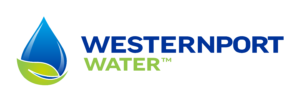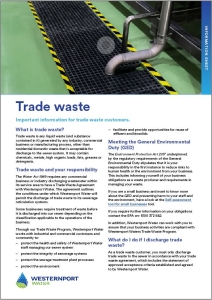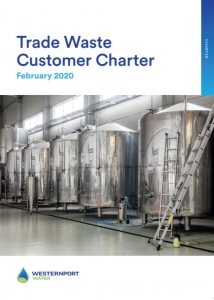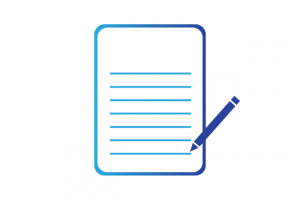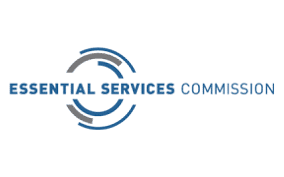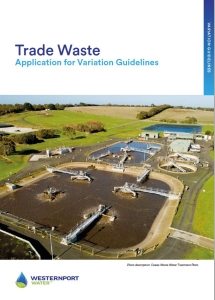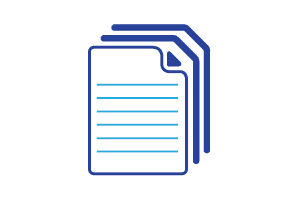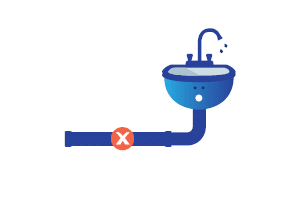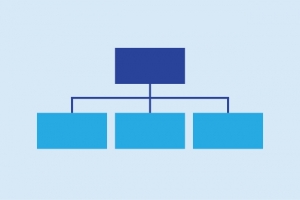What is Trade waste?
Trade waste is any liquid waste (and substance contained in it) generated by any industry, business, trade or manufacturing process, other than domestic waste, acceptable for discharge to sewer. Domestic waste is water from toilets, sinks, showers, basins and washing machines within households discharging to the sewer.
Westernport Water closely monitor our sewer system to make sure waste is within the required limits. We can refuse to accept waste from businesses discharging waste exceeding these limits, as our wastewater (sewerage) treatment plants cannot treat wastewater with high amounts of fats, chemicals etc.
To ensure businesses do the right thing, commercial customers are part of our Trade Waste Program. The aim of the program is to work with businesses to minimise and monitor waste discharges to the sewerage system.
Further details are available on our Trade Waste information – Fact Sheet or in our Trade Waste Customer Charter.
Trade Waste Information Fact Sheet
Westernport Water’s Trade Waste information – Fact Sheet is a simplified explanation of what trade waste is, and who is responsible for it.
Trade waste customer charter
Westernport Water’s Trade Waste Customer Charter outlines the processes and guidelines for obtaining approvals to discharge Trade Waste to the Westernport Water sewer system, including responsibilities and standards of Trade Waste management services. The purpose of this code is to provide customers with consistent, transparent and timely decision-making advice for Trade Waste management in Westernport Water’s service area. The Charter provides different types of agreements for the different customer classifications and categories of trade waste discharge. The category of Trade Waste determines the type of Trade Waste Agreement and also the pricing structure. The categories are described below:
Category 1 - Deemed Trade Waste Customers
Deemed Trade Waste Customers – Provides for a generic deemed trade waste consent for small trade waste dischargers.
Customers that discharge trade waste of a similar nature to domestic sewerage and a low volume containing neither chemicals or fats or oils will be assumed to be a deemed consent customer. They will be subject to an Agreement after they have completed the Application Form in the form of a Generic Deemed Consent. Click here to obtain a copy of the Standard Generic Deemed Consent.
Category 2 - Greasy or Commercial Minor Trade Waste Customers
Greasy or Commercial Minor Trade Waste Customers – Provides a Corporation signed consent to discharge greasy or oily discharges of trade waste
Customers that discharge Trade Waste that is likely to have grease or oil or food or substances from food preparation contained in the waste will require a Trade Waste Consent signed by Westernport Water. This Consent outlines conditions for discharging greasy or commercial waste including installing and maintaining appropriate on site treatment. They will specify the required grease interceptor trap or similar oil or fat removal equipment including the maintenance of the treatment system. A Standard type of Agreement may be viewed here Category 2 Greasy Commercial or Minor Trade Waste Agreement. Customers will need to make application using the General Trade Waste Aplication Form.
Ensuring regular cleaning and removal of accumulated grease and oil from your interceptor is your responsibility and must be carried out by an Environment Protection Authority (EPA) licensed transporter. Your trade waste agreement will specify the required frequency that business owners are required to have pre-treatment apparatus cleaned out. Westernport Water can help provide efficiencies for business and organise the services of an EPA licensed contractor to collect and dispose of minor commercial greasy trade waste. Alternatively owners can organise their own grease/oil interceptor traps clean-out and provide evidence to Westernport Water of regular pump-outs. If you require Westernport Water trade waste services please contact Westernport Water on 1300 720 711.
These business owners are required to apply for consent to discharge commercial trade waste by completing the General Trade Waste Application Form
Category 3 - Major Trade Waste Customer
Major Trade Waste Customers – Categorised as high-risk due to waste nature and/or volume.
These customers must hold a signed trade waste agreement and discharge in accordance with the published Approved Acceptance Criteria. Download a copy here – Category 3 Major Trade Waste Agreement. Customers will also need to make application using the General Trade Waste Application Form.
Apply for trade waste permit
The Water Act (1989) requires any commercial business or industry discharging trade waste to a sewer to have an agreement, either in the form of consent or formalised signed trade waste agreement with Westernport Water. The agreement outlines the conditions under which Westernport Water will permit the discharge of trade waste to its sewerage reticulation systems.
The owner or managing agent of a business generating trade wastewater has a legal obligation to ensure the business obtains permission to discharge trade wastewater to a sewer.
To apply for a permit, please complete the Trade Waste Application Form and return it to Westernport Water.
If you need assistance please read the Major Trade Waste Application Guidelines or contact alternatively contact us on 1300 720 711 and speak to a member of our Trade Waste Team.
Trade waste customer service code
The trade waste code specifies the standards and conditions that water businesses must comply with when they provide water or wastewater services to customers. The Essential Service Commission’s (ESC) Trade Waste Customer Service Code provides conditions for Westernport Water to manage all trade waste discharges to the sewerage reticulation systems. The ESC’s Code requires that Westernport Water have a Trade Waste Customer Charter that provides for different types of agreements for the different customer classifications and categories of trade waste discharge.
ESC Statement of Approved Acceptance Criteria for Trade Waste Discharge
In accordance with the ESC Trade Waste Customer Service Code, Westernport Water is required to follow set parameters that limit the concentration of waste allowed for discharge into the sewerage system.
The following tables list the three wastewater treatment plants in the area (Cowes, King Road, Kilcunda/Dalyston) and the maximum allowed concentration of waste for each. If these parameters are unable to be met and special conditions need to be established then a variation application will need to be submitted.
Please note that any trade waste discharge will require an application using the General Trade Waste Application Form.
ESC Statement of Approved Acceptance Criteria for Trade Waste Discharge
Trade waste – Application for Variation Guidelines
An Application for Variation should be requested whenever a major Trade Waste discharger is unable to reasonably comply with Westernport Water’s published Trade Waste acceptance limits.
The Application for Variation Guidelines explain if and when you need to request a variance when filling in the General Trade Waste Application Form.
Trade waste management policy
To guide the use of the Trade Waste Customer Charter and to provide fairness in the way Westernport Water treats its customers Westernport Water has a Trade Waste Management Policy (V4)
Grease/oil interceptors (traps)
The purpose of a grease or oil interceptor is to trap grease and oil at the source and prevent it from entering the sewerage system where it may cause blockages. Depending on the type of business, other types of pre-treatment may also be required. Westernport Water can assist businesses to determine what sort of pre-treatment is required or whether an existing trap needs to be upgraded. A registered plumber will need to be engaged to carry out works such as this.
Cleaner production and waste minimisation
Environment waste minimisation
The EPA provides the following waste hierarchy which Westernport Water fully supports (in order of preference):
- avoidance
- reuse
- recycling
- recovery of energy
- treatment
- containment
- disposal.
In some cases Westernport Water will require businesses to prepare waste management plans. These plans will need to focus on the sources of wastes, waste minimisation and treatment of trade waste.
Here are some tips to consider in your daily business activities which will help to reduce greasy waste, protect the environment and save you money:
- wipe before washing
- pour used oil into containers for recycling
- use less cooking oil where you can
- collect food scraps for composting
- use less detergent
- sweep floors before washing or hosing
- ensure that NO OIL goes down the drain.
